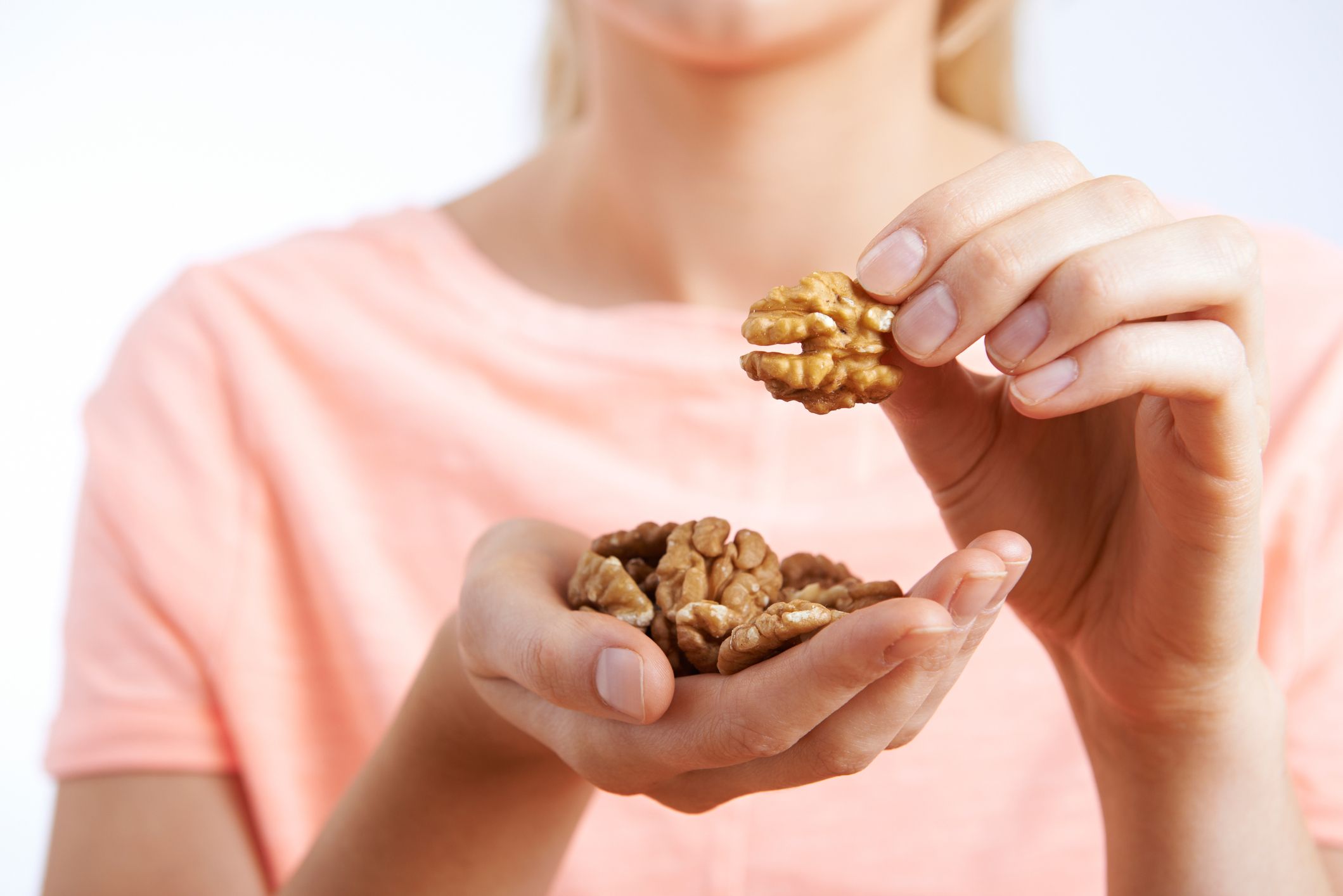
Fuel Your Fitness: How Walnuts Enhance Athletic Performance
The world of athletic performance is a relentless pursuit of optimization. Every marginal gain, every tiny tweak to diet and training, can mean the difference between a personal best and falling short. While protein powders and energy drinks often dominate the conversation, a surprisingly potent performance enhancer lurks quietly in the nut aisle: the humble walnut.
Beyond their delicious crunch and satisfying flavor, walnuts pack a nutritional punch that significantly impacts athletic capabilities. This isn’t about fleeting energy boosts; we’re talking about sustained performance improvements driven by a unique blend of nutrients that support everything from muscle recovery to brain function.
The Walnut’s Winning Combination: More Than Just a Healthy Snack
Walnuts aren’t just a source of healthy fats; they’re a powerhouse of essential nutrients crucial for athletes. Their nutritional profile is a carefully orchestrated symphony supporting peak physical condition:
| Nutrient | Benefit for Athletes |
|---|---|
| Omega-3 Fatty Acids (ALA) | Reduces inflammation, improves cardiovascular health |
| Antioxidants | Combats exercise-induced oxidative stress |
| Protein | Supports muscle growth and repair |
| Fiber | Promotes digestive health and satiety |
| Magnesium & Potassium | Essential for muscle function and electrolyte balance |
Let’s delve deeper into how these nutrients specifically impact athletic performance:
1. Inflammation Reduction: The Omega-3 Advantage
Intense training inevitably leads to inflammation. Omega-3 fatty acids, particularly ALA found abundantly in walnuts, act as potent anti-inflammatories, minimizing muscle soreness and accelerating recovery time. This allows athletes to train harder and more frequently without succumbing to chronic pain and fatigue.
2. Enhanced Cardiovascular Health: A Stronger Engine
Walnuts’ rich omega-3 content contributes to improved cardiovascular health. A stronger, healthier heart means more efficient oxygen delivery to muscles, leading to increased endurance and stamina. This benefit extends beyond just endurance sports; improved cardiovascular fitness improves overall athletic performance across the board.
3. Oxidative Stress Management: Protecting Your Cells
Exercise produces free radicals, which cause oxidative stress and damage cells. Walnuts’ potent antioxidant profile helps neutralize these free radicals, protecting muscle tissue and preventing performance degradation. This protective effect is critical for maintaining peak performance over the long term.
4. Muscle Recovery & Growth: The Protein Powerhouse
While not as protein-dense as some sources, the protein in walnuts, combined with other nutrients like magnesium, plays a vital role in muscle repair and growth. This supports the adaptation process after intense training, enabling athletes to build strength and improve performance consistently.
5. Brainpower Boost: Sharper Focus & Faster Reaction Times
Often overlooked, cognitive function plays a critical role in athletic success. Walnuts support brain health, enhancing focus, concentration, and reaction time – vital elements in many sports. Improved cognitive function can lead to better decision-making on the field and quicker adaptation to changing game situations.
Incorporating Walnuts into Your Athletic Diet
Integrating walnuts into an athlete’s diet is surprisingly easy. A small handful (about 1/4 cup) provides a significant nutritional boost. They can be enjoyed as a pre-workout snack for sustained energy, a post-workout recovery treat to aid muscle repair, or as part of a balanced meal.
Consider adding walnuts to:
- Overnight oats
- Salads
- Smoothies
- Trail mix
- Yogurt parfaits
Conclusion: The Unsung Hero of Athletic Performance
Walnuts, often overlooked in the athletic nutrition landscape, deserve a prominent place in any athlete’s diet. Their unique blend of nutrients offers substantial benefits, contributing to improved cardiovascular health, reduced inflammation, enhanced muscle recovery, and even improved cognitive function. By incorporating this delicious and nutritious nut into your training regime, you’re not just adding a healthy snack; you’re adding a powerful tool to enhance your athletic performance and reach your full potential.

Additional Information
Fueling Fitness: A Deeper Dive into Walnuts and Athletic Performance
While the general assertion that walnuts enhance athletic performance holds some merit, a deeper analysis reveals a complex interplay of mechanisms and requires nuanced consideration. The claim isn’t simply that “walnuts make you faster,” but rather that their unique nutritional profile contributes positively to several aspects crucial for optimal athletic function. This analysis explores these contributing factors in detail.
1. Beyond Omega-3s: A Multifaceted Nutritional Approach:
The focus often centers on walnuts’ high alpha-linolenic acid (ALA) content, an omega-3 fatty acid. ALA’s role in reducing inflammation, improving vascular function, and potentially enhancing mitochondrial biogenesis (the process of creating new mitochondria, the powerhouses of cells) is well-documented. However, reducing inflammation is crucial for recovery after strenuous exercise, and improved vascular function aids in oxygen delivery to muscles. Mitochondrial biogenesis is vital for endurance performance.
However, attributing performance enhancement solely to ALA is an oversimplification. Walnuts offer a potent blend of nutrients:
-
Antioxidants: Walnuts are rich in vitamin E, polyphenols, and melatonin, all powerful antioxidants combating oxidative stress generated during intense physical activity. Oxidative stress can lead to muscle damage and fatigue. Studies show that antioxidant supplementation can mitigate these negative effects.
-
Fiber: The dietary fiber in walnuts contributes to digestive health and satiety, aiding in maintaining consistent energy levels throughout training and competition. This is particularly relevant for endurance athletes.
-
Magnesium and Potassium: These essential electrolytes are vital for muscle function and contraction. Adequate intake is crucial for preventing cramps and maintaining fluid balance during prolonged exercise. Walnuts contribute to these needs.
-
Protein and Arginine: Walnuts provide a moderate amount of protein, essential for muscle repair and growth, and arginine, a precursor to nitric oxide which improves blood flow.
2. Specific Applications and Considerations:
The impact of walnut consumption on athletic performance likely varies depending on factors like:
-
Training intensity and type: Endurance athletes might see more pronounced benefits related to improved oxygen utilization and reduced inflammation, whereas strength athletes could benefit from the support of muscle repair and recovery.
-
Individual nutritional status: The effect will be more pronounced in individuals with existing deficiencies in omega-3s, antioxidants, or electrolytes.
-
Dosage and timing: While studies show benefits, optimal consumption levels and timing (e.g., pre-workout, post-workout) require further research. It’s unlikely that a handful of walnuts will dramatically alter performance, but consistent inclusion as part of a balanced diet is likely beneficial.
3. Evidence and Limitations:
While anecdotal evidence and some studies suggest positive correlations between walnut consumption and improved athletic markers (e.g., reduced inflammation, improved VO2 max), robust, large-scale, randomized controlled trials specifically examining performance enhancements are lacking. Many studies focus on the individual components of walnuts rather than their synergistic effect. Further research is needed to establish clear cause-and-effect relationships and optimal usage protocols.
4. Conclusion:
Walnuts, owing to their rich nutritional profile, present a valuable addition to an athlete’s diet. Their contribution to reducing inflammation, improving vascular function, and providing essential micronutrients supports optimal athletic performance. However, it’s crucial to avoid oversimplification. Walnuts are not a magic bullet, but rather a component of a holistic nutritional strategy essential for success. Further research is needed to quantify their precise impact on various athletic disciplines and establish evidence-based recommendations for optimal intake and timing. Incorporating walnuts into a balanced diet is likely beneficial, but they shouldn’t replace other crucial aspects of training and recovery.
